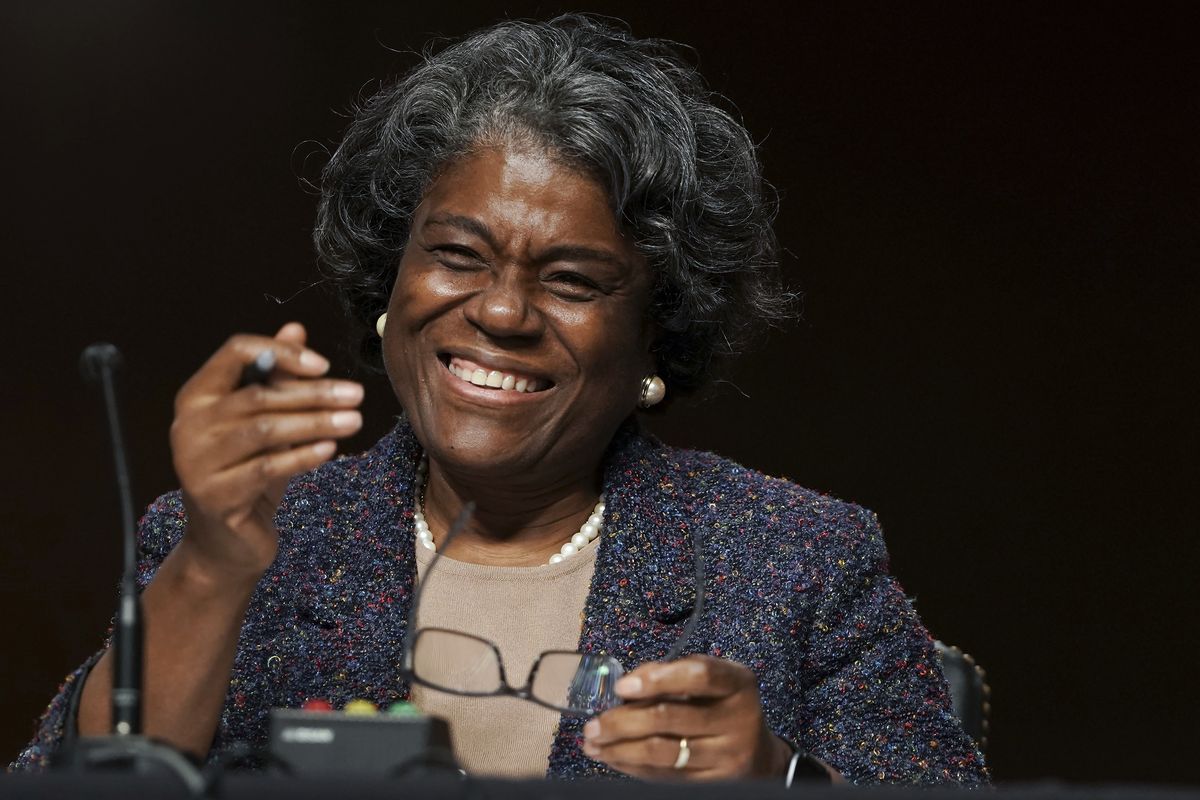Senate confirms Biden’s choice for UN ambassador

WASHINGTON — The Senate confirmed President Joe Biden’s choice to lead U.S. diplomacy at the United Nations on Tuesday. The vote for Linda Thomas-Greenfield reflected a divide between the Biden administration’s determination to re-engage with the world body and former President Donald Trump’s diplomacy that often left the U.S. isolated internationally.
Senators voted 78-20 to confirm Thomas-Greenfield to the post, which will be a Cabinet-level position.
Thomas-Greenfield, a retired 35-year veteran of the foreign service who resigned during the Trump administration, will be the third African-American and second African-American woman to hold the job.
Many Republicans opposed her because they said she was soft on China and would not stand up for U.S. principles at the United Nations. Thomas-Greenfield had rejected those concerns during her confirmation hearing, telling senators that a 2019 speech she gave to the Chinese-funded Confucius Institute had been a mistake and was not intended to be an endorsement of Chinese government policies.
In the speech, she had praised China’s $1 trillion Belt and Road global infrastructure program in Africa and called for “a win-win-win situation” where the U.S. and China would promote good governance and the rule of law.
She told senators that China is a strategic adversary and “their actions threaten our security, they threaten our values and they threaten our way of life, and they are a threat to their neighbors and they are a threat across the globe.”
Thomas-Greenfield spoke of China’s diplomatic inroads during the Trump administration, which pursued an “America First” policy that weakened international alliances. And she made clear there will be a change under Biden to re-engage internationally and promote American values.
She stressed that American leadership must be rooted in the country’s core values — “support for democracy, respect for universal human rights, and the promotion of peace and security.” And, she said that effective diplomacy means developing “robust relationships,” finding common ground and managing differences, and “doing genuine, old-fashioned, people-to-people diplomacy.”
At her hearing, she recalled going to a segregated high school and then to Louisiana State University “as a consequence of a lawsuit.” She said she was “not the norm” among the Ivy League graduates who also joined the Foreign Service in 1982.
“And yet, I had an extraordinary 35-year career, that culminated as the assistant secretary of state of African affairs,” Thomas-Greenfield said. “To me, that represents the progress, and promise, of America.”